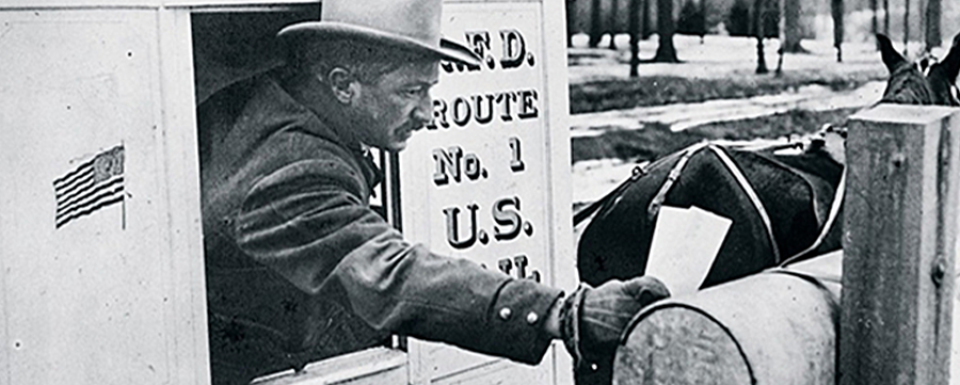Rural and Urban Origins of the U.S. Postal Service
August 26, 2019 (RISC-WP-19-007)
- From its earliest beginnings, the Postal Service wrestled with conflicts between the needs of rural and urban communities.
- Congress has played a key role in shaping postal policy throughout history, particularly in rural areas where it worked on granular issues such as the selection of specific delivery routes and the appointment of rural carriers.
When the United States was founded, the Post Office was an urban enterprise — even though cities were smaller than they are today and were home to only a small share of the nation’s population. As the country expanded, the Post Office Department quickly became one of the most important public institutions. For nearly two centuries, it commanded an outsized share of resources and influence in government.
As this brief history shows, the postal establishment struggled to adapt to the many ways the dispersed rural population differed from the concentrated urban population. Even though America has become an increasingly urban society, rural areas retain a distinct culture. The Postal Service is a part of that.
This white paper brings an essential historical perspective and is the first in a larger body of OIG work to better understand the urban-rural divide and how it is exhibited through the Postal Service’s customers. Because the Postal Service has a binding effect on the community spirit and engagement with Americans, considerations of changes to the current service model require thoughtful evaluation of the impact on both urban and rural citizens.
Nye Stevens, Natalie Prosin, and Bryant Switzky contributed to this report.

